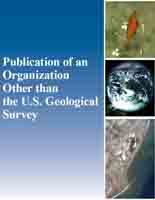Science, population ecology, and the management of the American black duck
Links
- More information: Publisher Index Page (via DOI)
- Download citation as: RIS | Dublin Core
Abstract
This essay deals with the relevance of some of the ideas of Romesburg (1981) to population ecology and management of the American black duck (Anas rubripes). Most investigations dealing with the effects of hunting regulations on black duck populations have used the hypothetico-deductive (H-D) approach of specifying a priori hypotheses and associated deduced predictions. These investigations have not used manipulative experimentation, however, but have involved severely constrained analyses of historical data and have thus produced weak inferences. The 1982 lawsuit over black duck hunting regulations, the current uncertainty about appropriate black duck management actions, and the frequent skirmishes in the published literature of black duck population ecology are natural consequences of these weak inferences. I suggest that we attempt to take advantage of management and other manipulations by treating them as an opportunity to learn something via experimentation, as recommended by Macnab (1983) and Walters (1986).
Suggested Citation
Nichols, J., 1991, Science, population ecology, and the management of the American black duck: Journal of Wildlife Management, v. 55, no. 4, p. 790-799, https://doi.org/10.2307/3809533.
| Publication type | Article |
|---|---|
| Publication Subtype | Journal Article |
| Title | Science, population ecology, and the management of the American black duck |
| Series title | Journal of Wildlife Management |
| DOI | 10.2307/3809533 |
| Volume | 55 |
| Issue | 4 |
| Year Published | 1991 |
| Language | English |
| Publisher | Wiley |
| Contributing office(s) | Patuxent Wildlife Research Center |
| Description | 10 p. |
| First page | 790 |
| Last page | 799 |


